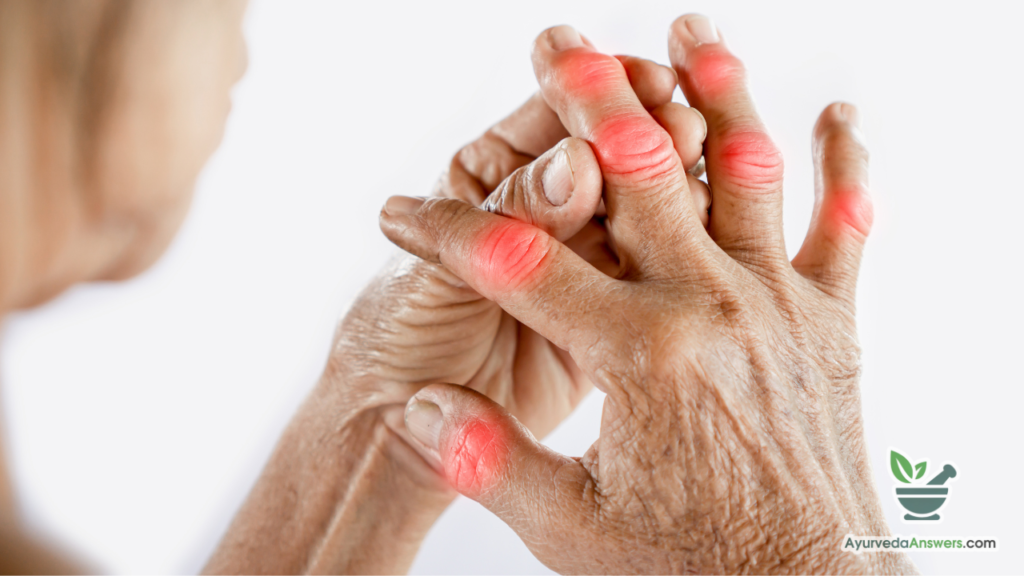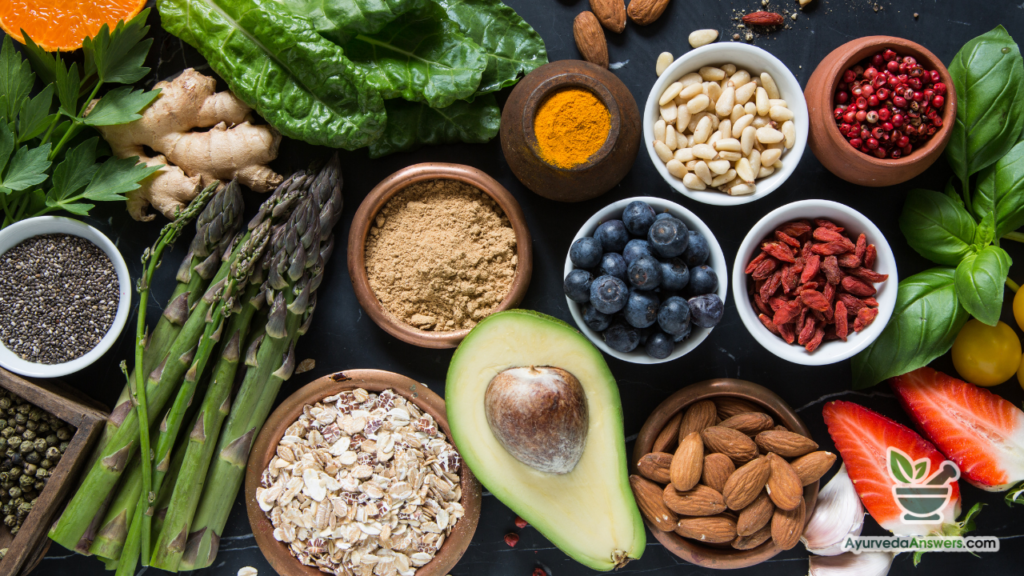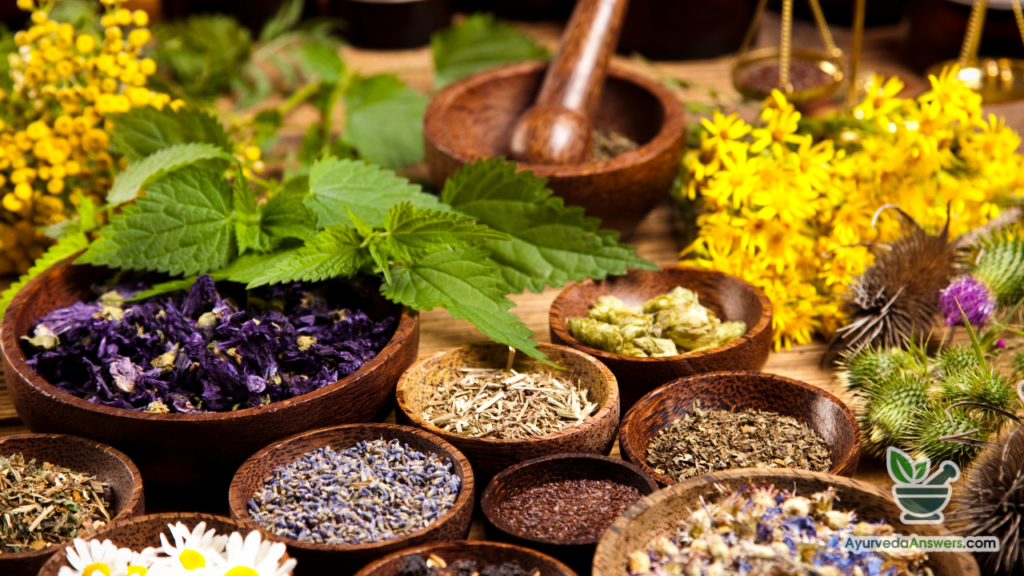
Ayurveda, the ancient Indian system of holistic health and wellness, offers timeless wisdom for bringing balance to mind, body and spirit. A key principle is understanding the three doshas – the biological energies that make up every individual’s constitution.
Of the three doshas, Vata is said to be the leader, governing all movements and change in the mind and body. When Vata is balanced, you experience the positive qualities of enthusiasm, creativity and lightness. But excessive Vata leads to anxiety, insomnia, digestive issues and more. 😬
Fortunately, with Ayurveda’s guidance, you can easily learn how to keep Vata in check through lifestyle, diet, herbal support and more. Discover key strategies for soothing, grounding and stabilizing Vata below. 👇
Origins and Qualities of Vata Dosha

Vata dosha is rooted in the elements of air and space. It oversees all activities related to motion, including blood flow, elimination, breathing, nerve impulses and higher cognitive functions. Vata types have quick, analytical minds and natural enthusiasm when in balance. But they also tend to have irregular digestion, sensitive nerves and thin, delicate frames. 🤔
Signs Your Vata is Out of Balance

It’s important to tune into your body’s signals to notice when your Vata dosha is starting to go haywire. Here are some key signs to watch for:
- Increased anxiety, worry or overthinking 😟
- Restlessness and feeling “ungrounded” 😵💫
- Difficulty falling or staying asleep at night 🌙
- Bloated belly, especially after eating 🍽️
- Irregular bowel movements 🚽
- Feeling cold easily ❄️
- Aches or stiffness in joints and muscles 🦴
- Skin or lips feeling dry and chapped 👄
- Hair that’s dry or brittle and prone to static 👩🦳
Paying attention to these cues from your body, mind and environment enable you to take action before Vata goes fully out of whack. 👍
Lifestyle Tips to Calm Vata

You can take simple day-to-day measures to keep excess Vata in check:
- Establish a routine – Vata types thrive on regularity. Have set times for waking up, eating meals and going to bed. 🕰️
- Keep warm – Pacify Vata by bundling up in cold weather. Wear socks, scarves and layers. Keep your feet warm. 🧦👢
- Hydrate often – Sip warm water through the day. Avoid getting dehydrated, which aggravates Vata. 💧
- Diffuse essential oils – Calming scents like lavender, cedarwood and chamomile settle excess Vata. 💐
- Give yourself a massage – A soothing abhyanga massage with warm oil pacifies Vata. 💆♀️
- Reduce sensory overload – Too much noise, crowds or travel provokes Vata. Unplug and simplify. 🙉
- Cultivate calm – Make time for yoga, meditation, walks in nature. Calming activities reduce anxious Vata. 🏞️
- Get plenty of rest – Vata types need extra sleep. Go to bed early and squeeze in naps if needed. 💤
Following these tips first thing in the morning and through your days and evenings will keep Vata grounded. 👣
Food Guidelines for Vata Pacification

Diet and nutrition choices have a major impact on Vata dosha. As a light, dry, cold dosha, Vata is balanced by foods with opposite qualities – heavy, oily, moist and warming. Here are some dietary guidelines:
- Favor warm, cooked foods – Soups, stews, porridges and teas are Vata-soothing. Avoid cold salads, drinks and raw veggies. 🍲
- Include natural oils – Cook with ghee, olive oil, sesame oil or coconut oil. Herbalized oils are excellent. 🍯
- Eat warming spices – Ginger, cumin, mustard seed, cinnamon and garlic pacify Vata. 🌶️
- Reduce gassy foods – Limit beans, cruciferous veggies, carbonated drinks. 🥦😅
- Steer clear of dry foods – Avoid crackers, chips, cereals, toast and other dry crunchy items. 🥨🧀
- Have regular mealtimes – Eat at the same times each day. Don’t skip meals. Going long periods without eating aggravates Vata. 🍝🕑
- Enjoy sweet, sour and salty tastes – Balance airy Vata with warming sweet and sour fruits, broths, milk, vinegar, seaweed. 🍋🧂
- Drink fluids – Stay hydrated by sipping warm water with lemon, herbal teas and spiced milks like turmeric latte. 🍵
Tailoring your diet to be moist, warm, oily, salty and sweet keeps Vata balanced. Be sure to avoid cold, dry and crunchy foods. 👍
Calming Yoga Poses and Exercises

The right types of movement can help settle Vata dosha when it’s on overdrive. Focus on yoga poses and exercises that are grounding, stabilizing and soothing.
- Inversions – Turning the body upside down reverses excessive upward, airy Vata energy. Try downward dog, standing forward fold or legs up the wall pose. 🧘♀️
- Standing poses – Mountain pose, tree pose and warrior poses strengthen legs and create steadiness. 🧘♂️
- Forward folds – Seated forward bend, child’s pose and wide-legged forward fold calm the mind and nervous system. 🧎♀️
- Twists– Joint-friendly twists like thread the needle and half lord of the fishes massage abdominal organs. 🌀
- Balancing poses – Tree, eagle and dancer’s pose improve focus and stability. ♻️
- Relaxation – Restorative poses like child’s pose, corpse pose and kneeling pose unwind both body and mind. 🛀
- Slow, mindful movements – Tai chi, qi gong and gentle yoga flows balance excess Vata. 🧘♀️
Avoid intense cardio and high-impact exercises that put too much activating, catabolic strain on delicate Vata types. 🚫
Vata-Calming Herbs and Supplements

Herbal remedies derived from Ayurveda offer safe, effective ways to settle aggravated Vata. Consider trying:
- Ashwagandha – This potent adaptogen relieves stress, fatigue, anxiety and nervous system depletion. 💊
- Brahmi – Supports memory, cognition and calms emotional turbulence. 🧠
- Ginger – Improves digestion and circulation. Great for Vata bloating and gas. 💨
- Gotu Kola – An important herb for enhancing stability and grounding excess Vata. 🙂
- Omega-3s – Help offset Vata’s dryness. Take fish oil or flax daily. 🐟
- Tulsi – An uplifting herb that eases Vata anxiety and restlessness. 🙏
- Turmeric – Anti-inflammatory and analgesic properties reduce Vata aches and pains. 🧂
Herbs work synergistically to calm and nourish both mind and body. Always consult your Ayurvedic practitioner. 👩⚕️
Home Remedies to Soothe Vata

You can whip up fast, simple home remedies with ingredients from your kitchen to pacify Vata when it acts up:
- Warming herbal tea with ginger, cinnamon and cardamom ☕
- Golden milk made with turmeric, ginger, cinnamon and coconut milk 🥛
- Abhyanga sesame oil massage to lubricate dry Vata skin and joints 💆♀️
- Mint or ginger tea for nausea or sluggish digestion 🍵
- Chamomile-ashwagandha nightcap to ease anxious mind and promote sleep 😴
- Lemon-honey warm water upon
Conclusion
By incorporating these Ayurvedic strategies into your daily life, you can nurture a harmonious relationship with your Vata dosha. Whether it’s establishing a calm routine, savoring nourishing meals, or finding solace in movement and herbs, every effort to pacify Vata brings you closer to a grounded, vibrant state of well-being. Remember, Ayurveda is a journey, not a destination. Embrace the wisdom it offers, listen to your body’s whispers, and enjoy the newfound lightness and serenity as your Vata finds its sweet, balanced space within you.
Disclaimer : The ancient healing techniques described in these articles are not intended as substitutes for professional medical advice or treatment. Consult a physician before trying any new health treatment. Do not stop or change prescribed medications without consulting your healthcare provider. The information provided is for educational purposes only. Results will vary based on individual factors. Always rely on the guidance of a qualified medical professional for any health concerns.
Read Our Latest Articles
- Ayurveda for Disc Bulge: Finding Relief Naturally
- Ayurveda for Alopecia Areata: Nurturing Hair Health Naturally
- Ayurveda for Asthma: Breathe Easy with Natural Solutions
- Ayurveda for Melasma: Embracing Natural Solutions for Clear, Radiant Skin
- Ayurveda for Dampness in the Body: Embracing Balance and Vitality
Leave a Reply